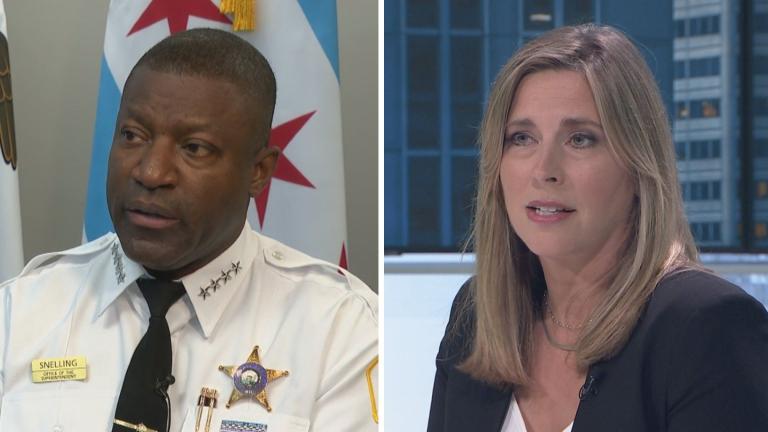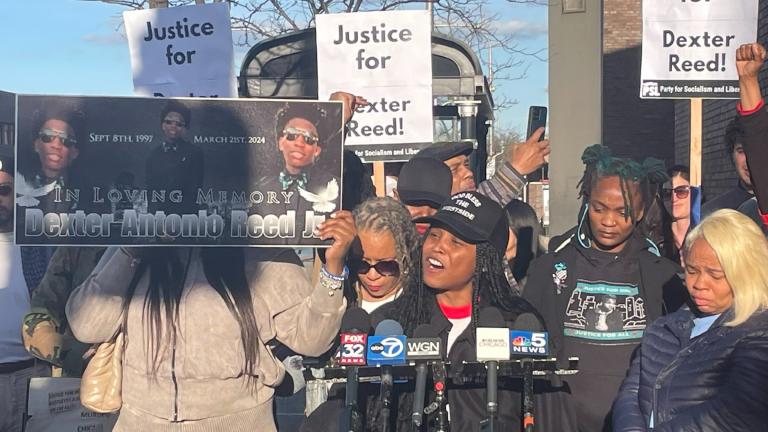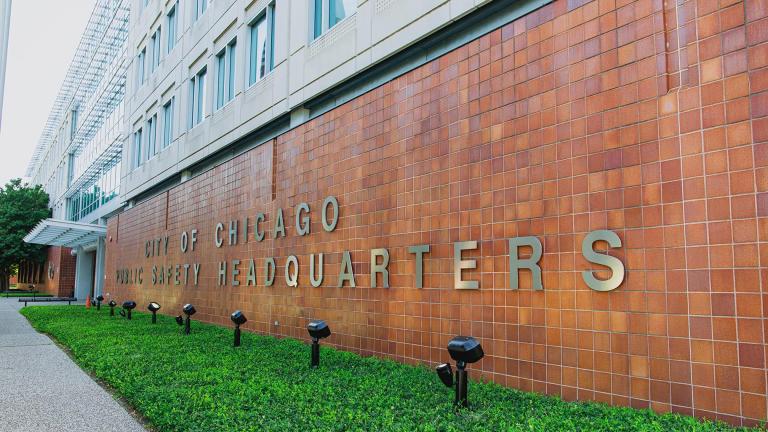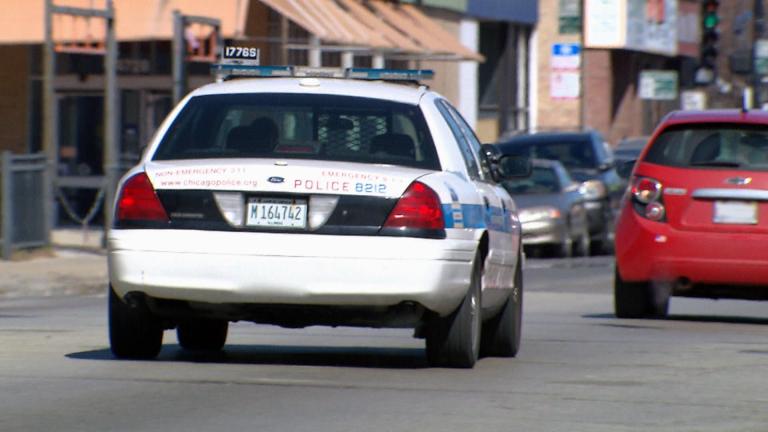For many of us, calling the police to handle all sorts of problems — from noise complaints to neighbor disputes – is a reflexive response. But for some communities, a troubled history with police interactions makes calling 911 a difficult, even impossible choice.
With an intensifying focus on where and how police resources are best used, some communities are seeking ways to reduce their dependence on law enforcement as a solution to all of their problems.
“We need to redefine what the police should be doing, because they’re pretty restricted when somebody is in a mental health crisis. They have one option,” said Alexa James, executive director of the National Alliance for Mental Illness Chicago. “If clinicians can intervene, and really intervene early before people are acutely ill, there are many more options and many more opportunities to intervene in a way that isn’t traumatizing, and doesn’t put them in front of the police department.”
James says that now that the police have become the de facto social safety net for mental health, it’s incumbent upon communities to re-examine what situations truly require intervention by police.
“We have to get out of this mind space that if we are uncomfortable, someone has to be physically removed and detained,” said James.
Neha Gill, executive director of the advocacy organization working against gender violence, Apna Ghar, says the survivors of gender-based violence their organization serves are from a range of ethnic, religious and racial minority groups.
“What all these survivors have in common,” Gill said, “is that the police are a last resort when everything else has failed, or their experience of violence is just too extreme … while there are definitely police officers and police chiefs who are invested in making things better, more often than not, we hear of things going wrong, of officers not appropriately assessing the situation, of victim blaming, and sometimes even arresting the victim.”
Gill said that while her organization cannot provide immediate intervention similar to what the police can offer, Apna Ghar does operate a 24-hour crisis line, provide emergency and long-term housing via a safe home, counseling and mental health support, medical and legal advocacy, and other services.
“If someone does feels like they need to call the police, we try to help them get the best possible result by talking to them about what to expect and how to manage the situation and also by being available to talk to the police,” said Gill.
Chris Patterson, senior director of programs and policy at the Institute for Nonviolence Chicago, says that for street outreach to work, they have to do the work of building relationships first.
“The foundation of the outreach work is always relationships the staff has to the community,” Patterson said. “It’s a trusted relationship … in Austin if there’s an older lady who calls us and says ‘these guys are on my front step and they won’t leave,’ what we’re hearing is she doesn’t have a relationship with those guys, so she feels she has to call someone to intervene. We’ll go talk to the guys and then we try to make an introduction and set the boundaries in a series of conversations where we say, ‘this sister doesn’t want you standing on her steps. If she asks you to move, you should move.’”
Patterson says that law enforcement has come to rely on street outreach to intervene in some situations where those relationships can be leveraged.
“We’re not saying never call 911 because we aren’t calling for abolishing the police, but we’re saying, give us a call as well … One of our ideas is building out that community relationship to where they call us on non-criminal instances and letting us intervene,” he said. “We’ve had law enforcement contact us and ask us to intervene in situations like, someone is sitting on your car, on your front steps, maybe we can leverage relationships so that we can de-escalate that, stop them from doing what they’re doing and without anyone walking away with a criminal record because of it.”








